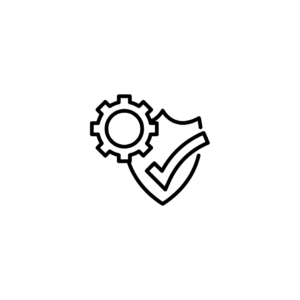Description
An Advanced Diploma in Health Quality Management is designed for individuals seeking to pursue a career in health services management, specifically focusing on quality assurance, improvement initiatives, and compliance within healthcare organizations. This program equips students with the knowledge and skills necessary to enhance the quality of healthcare services, ensure patient safety, and improve overall operational efficiency.
Course Details:
Duration: Typically 1 to 2 years, depending on the institution and program structure.
Eligibility: Candidates usually need to have completed higher secondary education (12th grade) or possess a relevant qualification in healthcare, management, or a related field.
Mode of Study: Offered in full-time or part-time formats, often featuring a blend of classroom instruction, practical training, and fieldwork.
Curriculum:
The curriculum for an Advanced Diploma in Health Quality Management generally includes the following key areas:
1. Introduction to Health Quality Management
Overview of Quality Management:
Understanding the principles and importance of quality management in healthcare settings.
Historical Context:
A review of the evolution of quality assurance in healthcare and key frameworks (e.g., Lean, Six Sigma).
2. Quality Improvement Strategies
Quality Improvement Models:
Exploration of various models used to implement quality improvement initiatives, such as Plan-Do-Study-Act (PDSA) cycles.
Performance Measurement:
Techniques for measuring and analyzing performance metrics to drive improvements.
3. Regulatory and Accreditation Standards
Understanding Regulations:
Familiarization with national and international healthcare regulations affecting quality management.
Accreditation Processes:
Overview of accreditation standards (e.g., Joint Commission, ISO) and their impact on healthcare quality.
4. Patient Safety and Risk Management
Principles of Patient Safety:
Understanding frameworks and strategies for ensuring patient safety in healthcare delivery.
Risk Assessment and Management:
Techniques for identifying, assessing, and mitigating risks within healthcare organizations.
5. Data Collection and Analysis
Data Management:
Skills for collecting, managing, and analyzing data relevant to quality and performance metrics.
Using Healthcare Data:
Techniques for utilizing data to inform decision-making and continuous improvement efforts.
6. Health Information Technology
Role of Health IT:
Understanding the importance of health information systems in quality management, including Electronic Health Records (EHR).
Data Privacy and Security:
Overview of laws and regulations regarding patient data privacy (e.g., HIPAA) and cybersecurity measures.
7. Leadership and Change Management
Leadership Skills:
Developing leadership qualities necessary for driving quality initiatives within a healthcare organization.
Managing Change:
Strategies for effectively implementing change and overcoming resistance in health quality management.
8. Clinical Governance
Understanding Clinical Governance:
Overview of the framework that ensures accountability for quality and safety in clinical practice.
Improving Clinical Outcomes:
Strategies to enhance clinical effectiveness and improve patient outcomes.
9. Ethics and Professional Standards
Ethical Principles in Healthcare:
Exploring ethical considerations and dilemmas related to quality management in healthcare.
Professional Standards:
Understanding the professional responsibilities and standards of practice in health quality management.
10. Practical Training and Field Experience
Internships or Practicums:
Hands-on experience in a healthcare setting, working on real-world quality management projects under supervision.
Case Studies:
Analyzing real-life case studies to identify quality improvement opportunities and develop actionable strategies.
Assessment:
Assessment methods in this program may include:
Project Work:
Completion of assignments related to quality improvement plans, performance metrics analysis, or case studies.
Practical Assessments:
Evaluation of skills demonstrated during internships or practicums in quality management settings.
Written Assignments:
Research papers or reflections on healthcare quality topics, regulatory compliance, and case study analyses.
Career Opportunities:
Graduates of the Advanced Diploma in Health Quality Management can pursue various career paths, including:
Quality Improvement Coordinator: Leading initiatives to enhance quality of care and patient safety within healthcare organizations.
Health Services Manager: Overseeing operations in healthcare facilities, focusing on quality and compliance.
Patient Safety Officer: Implementing strategies to ensure patient safety and reduce adverse events in healthcare settings.
Compliance Officer: Ensuring organizations adhere to regulatory standards and policies related to healthcare quality.
Healthcare Consultant: Providing advisory services to healthcare organizations on quality improvement programs and compliance strategies.
Data Analyst in Healthcare: Analyzing health data to identify trends and improvement opportunities related to patient care quality.
This advanced diploma program is ideal for individuals passionate about enhancing the quality of healthcare services and improving patient outcomes. It combines theoretical knowledge with practical skills, preparing graduates for successful careers in health quality management. If you have any further questions or need more information, feel free to ask!









